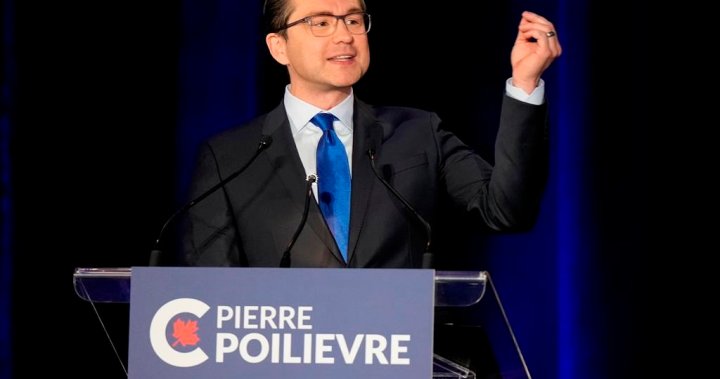
Social conservatives view growth in Conservative membership as an opportunity
Global News
There is a degree of overlap between the 'freedom' voters attracted to Pierre Poilievre and the well-organized and motivated social conservative wing, sources say.
Some social conservatives view the massive influx of new Conservative Party members as an “opportunity” to strengthen their movement’s influence within the party.
It remains to be seen, however, how successful “socon” groups will be at recruiting from the roughly 400,000 new members the party claims to have signed up over the current leadership race – or how beholden the likely next leader, Pierre Poilievre, will be to the faction.
No campaign – or even the party itself – has a perfect grasp on who exactly the new Conservative members are, or what’s motivating them to get involved in partisan politics. But multiple sources who spoke to Global News said a sizeable chunk could be characterized as “freedom” voters, enticed by Poilievre’s anti-establishment narrative. That’s where the socons see their “opportunity.”
Social conservatives are an influential and historically well-organized tribe within the Conservative Party, and their members have exerted their influence over choosing the last two leaders.
In 2017, social conservatives put Andrew Scheer over the top after their preferred standard-bearers – Pierre Lemieux and Brad Trost – were eliminated from the party’s ranked-ballot leadership contest.
In 2020, Erin O’Toole actively courted socon votes in his successful bid to upset Peter MacKay, who had referred to social conservative issues as a “stinking albatross” around Scheer’s neck during the 2019 general election.
The comment became MacKay’s own albatross in a race he was widely expected to win.
But that was when the party had roughly 260,000 members. Now that it has ballooned to an unprecedented 678,708 members, will the social conservatives’ influence in the leadership be diminished?











